Foreword
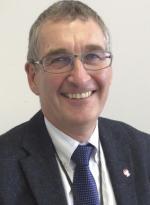
The Care Act 2014 states that every local authority must have a Safeguarding Adults Board (SAB). The SAB is a partnership of organisations working together to prevent abuse and neglect of adults in need of care and support. If someone experiences such behaviour, they have a duty to respond in a way that supports their choices and aids their wellbeing.
Hammersmith and Fulham’s SAB met for the first time in September 2018. The Care Act also requires each SAB to produce an annual report listing its activities, progress and achievements.
A key aspect of all safeguarding work is to listen to, and, whenever practical, take into account the wishes and experiences of those residents who have been victims of abuse and, or neglect. Annual reports normally give written examples of such engagement, invariably through the perspective of the organisation, not the individual.
We wanted to be different by bringing the work of the board ‘to life’. Our first annual report is, I believe, unique in that it is a series of interviews and film clips with both service users and service providers.
Such a venture requires imagination and the confidence to break away from the traditional written format. I am pleased that everyone involved from board members, the production team and, most importantly, those residents talking about their lives, have given the project their complete support.
It is regretted that the report was not available within the intended timescales of early March. The delay is due to the statistics shown on the slides from NHS England not being published until mid-November, the planning, filming and editing of the interviews and, most importantly, the unprecedented impact of the coronavirus pandemic.
Nevertheless, I hope you enjoy watching, listening to and reading about our first year.
Mike Howard
Independent chair of Hammersmith and Fulham Safeguarding Adults Board
April 2020
Our priorities
When we thought about our priorities, we wanted to know from local people, “What is important to you?”
Their replies led us to create our adult safeguarding strategy. One key message was that any strategy is written in easy to understand language so it is displayed as a ‘house’, which is built upon the foundations of wellbeing and safety.
People said that they do not want to be seen as victims, and want to be in control of the decisions they make about their life, even when they have experienced abuse or neglect.
Residents want to know what to do when they themselves, or someone they know, is being neglected or abused, by someone else. Most importantly, they want to be listened to and involved in any decisions made by other people about them.
We said that we want to be leaders who listen and learn from what people are telling us. Our strategy underpins the work of the board: all its safeguarding adults’ activity is focused on being led by the individual, ensure that the resolution of their concerns meets their needs and improves their quality of life, wellbeing and safety.
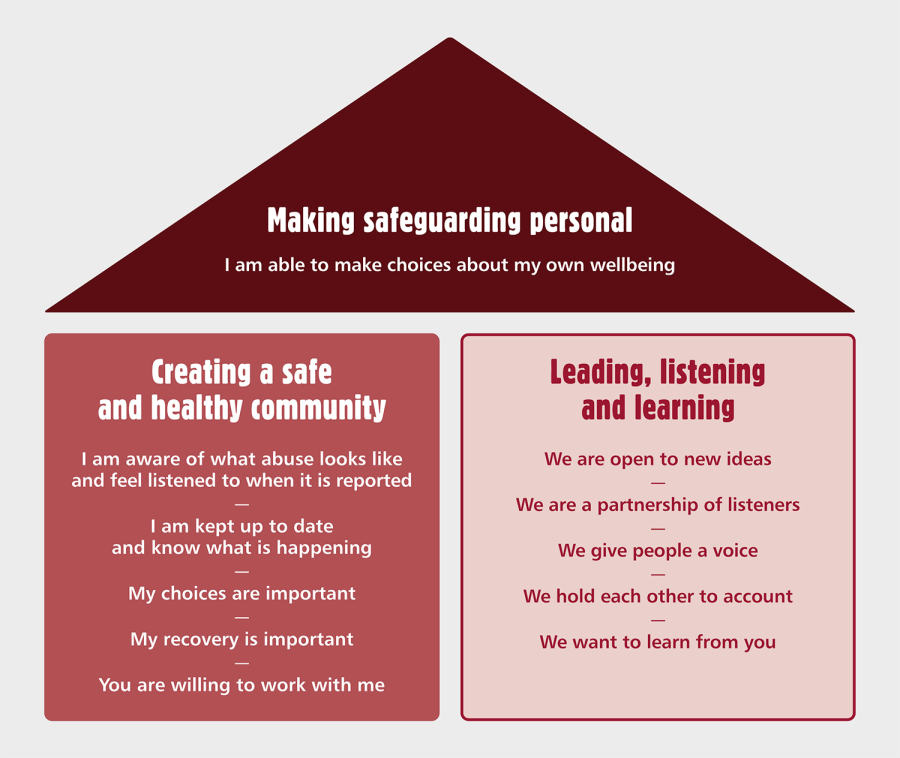
Our adult safeguarding strategy
What you said to us about: Making safeguarding personal
- I am able to make choices about my own wellbeing
What you said to us about: Creating a safe and healthy community
- I am aware of what abuse looks like and feel listened to when it is reported
- I am kept up to date and know what is happening
- My choices are important
- My recovery is important
- You are willing to work with me
What we said about: Leading, listening and learning
- We are open to new ideas
- We are a partnership of listeners
- We give people a voice
- We hold each other to account
- We want to learn from you
Board partners self-assessment of their safeguarding activities
In May 2019, eight board members completed a self-assessment audit spreadsheet designed and promoted by the London Safeguarding Adults Board. Each agency was asked to list three areas of safeguarding work which they considered to be a strength and three areas where there was room for improvement.
They were then asked to present their findings to three board members (the chair and members from the non-statutory sector) and to provide the evidence for their judgments. The following section summarises these conclusions.
Common themes are being used to inform the work of the board. Examples include the need for more training on the Mental Capacity Act. In September, the board organised a training and awareness morning on this subject attended by 90 people working in many different areas of safeguarding.
Another theme was the request for more feedback about the quality and outcome of any safeguarding referral - a topic the board has addressed with Adult Social Care.
-
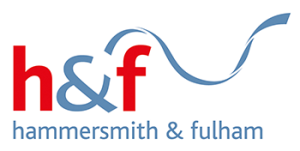
Areas of strength
- Our safeguarding hub has improved the management of concerns that come into us
- We develop an electronic safeguarding performance dashboard
- We have good leadership and safeguarding profile has been raised
Areas for improvement
- We need to ensure the Mental Capacity Act and capacity assessments are fully understood by all staff
- Need to improve the safeguarding training offer
- System for feeding back outcomes of referrals to those that make contact about a concern
-
Central London Community Health NHS Trust
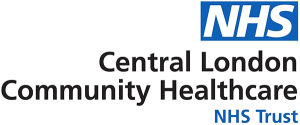
Areas of strength
- Increased awareness of safeguarding as evidenced by application of pressure ulcer protocol
- Think family approach to induction training
- Champions by personal experience
Areas for improvement
- Mental Capacity Act - need to revamp the training and update safeguarding manual
- Feedback on referrals
- Need to strengthen staff knowledge regarding the use of advocates
-
Chelsea and Westminster NHS Foundation Trust

Areas of strength
- Appointment of an adult safeguarding project officer
- Learning from best practice in terms of safe discharge procedure
- IDVAs at hospital sites
Areas for improvement
- Integration patient electronic record with safeguarding referral pathways
- Enhance of safeguarding training to achieve compliance
- Feedback regarding referrals can be mixed
-
Community Rehabilitation Company
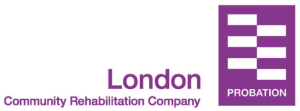
Areas of strength
- We work with vulnerable women victims and survivors of domestic abuse
- We delegate responsibilities to local teams to ensure local focus
- We have improved awareness of the risk posed by offenders living with adults of risk of harm
Areas for improvement
- Lack of staff capacity and risk to their safety whilst conducting home visits
- Training needs of staff in several safeguarding areas
- Foster improved links with Adult Social Care to develop better knowledge of the referral process
-

Areas of strength
- We use the 'Think family approach'
- We have seven day onsite safeguarding cover
- We have good support for those that have a learning disability
Areas for improvement
- Mental Capacity Act awareness
- Lack of consistent application of safeguarding criteria
- Resources available for safeguarding issues such as domestic abuse
-
North West London Collaboration of Clinical Commissioning Groups (CCGs)
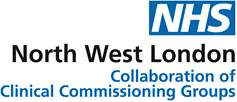
Areas of strength
- We have ensured that safeguarding is understood at all levels of our organisation
- We have written a safeguarding health outcome framework
- We have safeguarding procedures for the GP at Hand Project
Areas for improvement
- Ongoing and development work with primary care and non-NHS providers, care homes and domiciliary care agencies
- Adult safeguarding health and competencies for healthcare staff
- Rationalisation into North West London Collaboration of CCGs
-

Areas of strength
- We have good engagement with safeguarding professionals through dedicated single point of contact
- We have a positive action policy for domestic abuse
- Availability of serenity integrated mentoring officers who work with persons at high risk due to mental illness
Areas for improvement
- To improve the knowledge of staff about the Mental Capacity Act
- To adopt and focus on making safeguarding personal
- Succession planning - what happens if SPOC is not available
-

Areas of strength
- We have a good governance structure
- We have a practice development group
- We have ensured better sexual safety on our wards
Areas for improvement
- Need to develop one system for raising safeguarding concerns
- Improve MCA assessments
- Need to improve feedback from ADC regarding referrals
Interviews
Christopher Nicklin and Mike Howard
Christopher is the Assistant Director for Quality, Safety and Performance of Adult Social Care at the council and is a board member. Mike is the independent chair of the Safeguarding Adults Board.
Christopher talks about his social work background and how he wants to work for local residents. Mike describes how the board encourages different agencies to work in collaboration to resolve complex safeguarding issues using the example of hoarding. Both Mike and Christopher stress the need for safeguarding practitioners to put the needs of the individual first and not to impose their views.
Watch the BSL version of Chris and Mike's interview
Donna and Andre
Donna and Andre are sister and brother. Andre was born prematurely and sustained a brain injury at birth giving him a mental age of a 1-year-old child.
Donna tells about how her mother set up a care home within the borough to look after Andre which she described as 'home from home'. This smaller home was taken over following her mother's death, which, following staff changes, began to give inferior care to residents. Last year, things got so bad that Andre was removed from the home by the council.
Donna describes the experiences of working with the council to find the right home for Andre as 'positive'. She felt listened to and that everyone wanted the best outcome for Andre. Andre is now very happy in his new home and this is an excellent example of the making safeguarding personal approach of the board.
Watch the BSL version of Donna and Andre's interview
Parminder Sahota and Sally Jackson
Parminder is the Director of Safeguarding for Adults and Children at the West London NHS Trust which provides mental health services in the borough. Sally is the Partnership Manager at Standing Together, an organisation that works with the victims and survivors of domestic abuse in Hammersmith & Fulham. Both are board members.
Parminder and Sally talk about their work safeguarding the victims and survivors of domestic abuse, how lessons can be learned to train staff and so, hopefully, reduce further incidents.
Watch the BSL version of Parminder and Sally's interview
Sebastian Adjei-Addoh and Mick Mulholland
Sebastian was the police safeguarding lead for Hammersmith & Fulham prior to his transfer to East London earlier this year. Mick is the senior fire officer for the borough. Both Sebastian and Mick represent the Metropolitan Police and London Fire Brigade respectively on the Safeguarding Adults Board.
Sebastian talks about the work of his specialist officers investigating crimes against 'vulnerable' adults and how they liaise with colleagues within the council to provide the necessary support, especially if the person is required to give evidence in court. He wants to expand this work and develop an even closer working relationship through joint working within the MASH.
Mick talks about how his firefighters are encouraged to make safeguarding referrals to the council and mentions the increasing fire risk posed by an increasing prevalence of hoarding. Mick also mentions a future 'Telecare' project which the Fire Brigade is looking to 'roll out' across the borough.
Watch the BSL version of Sebastian and Mick's interview
Podcast
Thankfully most of us can live fully independent lives. Some adults need help, and lots of it. Like Andre.
This is the story of how he and his sister Donna have found a way to make sure Andre gets the help he needs. It’s also the story of how in Hammersmith & Fulham a new way of safeguarding adults is being pioneered and is delivering results for the people who need care, and for the whole community.
-
(Sound of door opening)
Donna: ‘Hello, I’m Donna... Have a seat.’
Reporter: ‘Thank you.’
Donna: ‘Hi Andy, hello young man. He’s like: Oh, what’s going on!... You look like you’re a bit half asleep... We usually get smiles later especially when I give him something special... You like those?’
Carer: ‘My dear, can we..’
Donna: ‘I need to give the carers Andre’s cash for the month.’
Reporter: ‘Yes…’
Donna in background: ‘...four hundred.’
Carer in background : ‘That is absolutely fine.’
Donna: ‘So my name is Donna Wells, I am Andre’s sister, and I live in Kent, with my husband. I have three stepchildren. I work 27 hours a week, three and a half days a week, with Thursdays off, in general practise as an advanced nurse practitioner, doing your GP work, and I have been doing that for 20 years now. So Andre, being my older brother, he was my mother’s first child, and he was born about five weeks premature and he, apparently, he had a brain hemorrhage 24 hours after birth. Andre was… I think there was a little bit more ability when he was first born, because he used to make some sounds and, not talk, but he was like a young baby; he was mouthing and following my mother’s face. But the brain injury from the bleed has meant that he is virtually perhaps got the mental age of somewhere between nine and 18 months. So he can’t walk independently, he has no balance at all, he has no speech, but he is obviously very aware of his surroundings. And obviously responds when you are with him. And he knows you, but he doesn’t know I am his sister. He probably sees me as that ooh, that’s that nice face, that person that is lovely, but he doesn’t know me as his sister.’
Carer in background: ‘The yoga class is going to start so we need to go.’
Donna: ‘Shall we go downstairs to your yoga class?’
(hallway sounds)
Donna: ‘So this is like a supported living environment. And Andre and Nigel that are here, this is a completely unique package of care. Usually people living in the flats here have a little bit of independence and they just need 17 hours of support a week. But social services had to negotiate a special package of care so that Andre and Nigel would both have a home that you’d want to live in yourself. They get the 17 hours here that support these staff. But the staff here are a separate, unique package offering 24/7 care... Shall we go down the stairs?’
(sound of walking on stairs)
Donna: ‘Actually, we had a really lovely childhood. We had difficulties with my father because he was an alcoholic, but my mother always, we had very much like a family group. And we had uhh, great fun. So I was only a couple of years older (she means ‘younger!) than Andre, so initially, he was my playmate. Apparently, when I was a toddler, I didn’t learn to crawl like most toddlers, because I copied Andre, cause he’d go along on his bottom. And then my younger brother did exactly the same. We used to have great fun. I mean Andre had a bed with a side on it to keep him safe and we used to make a ship out of his bed, and we used to put a tent over the top and Andre just thought it was hilarious. And I think that it was probably when I was seven or eight I remember thinking I was going to teach Andre. He could learn to read or write and paint. And I would sit there for hours with him trying to get him to use a pencil, but most of the time he used to want to chew them.’
(laughs)
Yoga teacher in background: ‘How do you feel today? How do you feel today?’
Resident: ‘Top of the world. Hey!’ Various voices: ‘Wow’ ‘Brilliant’, ‘Well done’.
Yoga teacher: ‘Do you want to do some yoga with us?’
Resident voice in background: ‘Yes. She feels good!’
Yoga teacher in background: ‘And then take a deep breath in, squeeze the shoulders up to the ears and exhale and let them go. Inhale: squeeze and lift, exhale: release. One more time. Inhale: squeeze and lift, exhale: release.’
Donna: ‘As my mother was getting older, her biggest fear was that what would happen if something happened to her. Especially as she had to divorce my father. If something happened to her, the only option in society at that time was what was known as state mental institutes. And they really were dreadful places, they were like prisons. And uhhm, Andre would have died very quickly being in a place like that. So firstly she battled for many years to get respite care so that there’d be weekend breaks and weeks away so that she could spend more time with us. And then she set up the Peter Pan trust to open up the first home in Hammersmith and Fulham for people with severe learning disabilities and uhm, it was really by her design so she knew it was going to work well.’
Carer in the background: ‘Thank you, Thank you.’
Yoga teacher in background: ‘Yeah, no problem.’ Carer: ‘Thanks everyone.’
(street noise, then hallway noise)
Christopher Nicklin: ‘I am Christopher Nicklin. I am the head of adult safeguarding in the London Borough of Hammersmith and Fulham... So the safeguarding adults board is a collection of professionals who are from all the different agencies that the adult social care in Hammersmith and Fulham have partnerships with. So they are people like the fire brigade, the police, our voluntary sector partners, like Hestia Housing, our mental health services. So they are all people who work with our residents in the community... The board has a chair, an independent chair who is called Mike Howard. He directs the board in its work and the idea is
that the board is supposed to oversee all the work that we are doing to safeguard residents in Hammersmith and Fulham.’Reporter: ‘What does that mean, safeguarding?’
Christopher Nicklin: ‘Safeguarding means,... really mechanisms that you put in place to ensure that people, wherever possible, are not harmed. So what that means is that all these agencies I just talked about, they all have people who work for them and they would work with people who are considered to be adults at risk. People who might, for example, have a learning disability, a mental health problem, might be physically disabled, might be an older person with dementia. Those people can be exploited by others and can be abused by others, at different levels. So to safeguard someone is to actually ensure that we protect them from harm wherever we possibly can. But that is not to say that we go in and tell people what to do with their lives. That is really important to stress that.’
(street sounds)
Mike Howard: ‘My name is Mike Howard. I am the chair, the independent chair, of the Hammersmith and Fulham safeguarding adults board. I think we... Mostly it is elderly people. Probably people 65, 70-plus, who are either being scammed, so that’s financial abuse, which is increasingly a big issue, not just in Hammersmith and Fulham, but across the country. But also people who are physically abused through neglect, or deliberate harm through people exploiting them or through carers, sometimes close relatives. But there is another area which is overlooked, I think, is young adults. People in their early twenties, who, because of their age, people assume that they are capable of looking after themselves. And many are, but some sadly are not.’
(yoga sounds)
Yoga teacher: ‘...sigh the breath away. (sighs) Now start to rub your hands (sound of hand rubbing). Warming up the hands... And maybe you rub a bit faster… A little bit faster... Ireen, concentrate! And then place your hands on top of your eyes. And feel the warmth of your hands on your face.’
Donna: ‘It would have about been the mid 80s, but I’m thinking it was around ‘82, ‘83, that
the home opened.’Yoga teacher: ‘... and sigh the breath away. One more time. Inhale: squeeze and lift, exhale: release.’
Donna: ‘Many years later, I had become a trustee of that charity as well. We felt that with the trustees were aging, my mother died and then my first husband died, so we had to think about the future of the home. And in 2007 I let another organisation take us over because I thought they’d do a better job. Long story short: in June of last year that home was put into special measures under the CQC. And I had a phone call on a Friday evening telling me that Andre was being removed from that home because of safeguarding concerns.’
Yoga teacher in background: ‘...Inhale: squeeze and lift. Exhale: release.’
Donna: ‘It was just like a sledgehammer, it was just like the biggest shock. If you can imagine, the amount of thoughts going through my head. Andre is homeless. The home that my mother set up that was once beautiful is being shut down by CQC, and what the hell, you know, has been going on. I was just absolutely horrified.’
Yoga teacher in background: ‘...and then take a deep breath in…’
(street noise and sound of siren)
Reporter in background: ‘Hello, are you Mick?’
Voice in background: ‘No, I’m not, I am (inaudible) station commander but I will take you up to see Mick.’
Reporter: ‘Is that Mick?’
Mick Mulholland: ‘Yes.’
(fire station sounds)
Mick Mulholland: ‘So my name is Mick Mulholland, I am London Fire Brigade, I am borough commander for Hammersmith and Fulham borough in London.’
Reporter: ‘And where are we here?’
Mick Mulholland: ‘Today we are currently standing in the appliance bay at Hammersmith fire station on Shepherd’s Bush Road. Uhhm. Rather chilly. But, you know, it is what it is. Here we are.’
Reporter: ‘No trucks?’
Mick Mulholland: ‘No trucks at the moment. The trucks are out on a fire call. The fire call has been dealt with. It is just up the road on Hammersmith Broadway, and I imagine they’ll be on their way back shortly.’
Reporter: ‘What do you do for the safeguarding adults board?’
Mick Mulholland: ‘So uhhm it is a really important, uhhm, it is a really important piece of work I think we do with our partners,I think, you know. Firstly, I suppose, London Fire Brigade, we always have a commitment to try and make sure the most vulnerable in our communities, yo know, are looked after and addressed. And we can do that by certain targets in terms of helping them. So as part of that, we have this collaborative working with our blue light partners, and local authority partners, and other partners that sit inside that, you know…’
Reporter: ‘Can you give an example of how things can get to an impasse and how the combining of services, like the board does, can help?’
Mick Mulholland: ‘Well I think, for me personally, I’m quite lucky in that we don’t often come to an impasse. But an example of helping me achieve something would be, uhhm, if we have a fatal fire in the borough, there are certain things that I need to put into a report, you know, that I am required to provide post-incident. And the local authority would be key in that for me.’
(sounds of firemen handling equipment and chatting in background)
Mick Mulholland in background: ‘Are you leaving her outside? ...You guys (inaudible).’
Reporter: ‘From the perspective of the residents, can you give an example of how this integrative approach has worked?’
Mick Mulholland: ‘Of course; I mean that can have a really, really positive impact on some people. So obviously, the first part there is the problem needs to be brought to you. So that would be brought to me individually or it comes to the council collectively. Because we have got these established working practises now we can have what we call our facilitated visits. So it may well be, you know, that LFB fire crews, someone from adult social care, uhhm, somebody from mental health, could visit a property where there is an individual in need, and we can address these needs collectively, if needs be, uhhm you know. And also with the observations that we have there, that may well form our thinking on how we could go away and maybe talk to advise maybe the social care services, that are trying to care in there. There might be a message that we might want to get across to them around bedding, or some creams, or how some of their services were working. So, yeah, it works well.’
(fading fire station sounds. Fading in: faint talking by carer in Andre’s care home)
Carer in background: ‘ (inaudible).. keys safe (inaudible) because there is no spare. Should I...’
Donna: ‘Oh, I will keep it safe. Yeah. Don’t worry. Don’t worry. I won’t you out (inaudible) it anywhere.’
Donna: ‘From that Friday evening when I was spoken to personally by the assistant director of adult services and Andre’s social worker, I have to say, that I have had fantastic support. I have no doubt that they were if not equally, but certainly very much horrified and shocked that this should happen to a service that they were meant to be monitoring. And they made absolutely huge efforts to not only be in contact with me, by email, by telephone weekly, the assistant director telephoned me or met with me, but they worked together with myself and my brother and the other families involved to wait and find a bespoke package of care. And in the interim period, so between leaving the house they were in and being found this bespoke package of care, Hammersmith and Fulham had a fantastic respite home, ran by a wonderful woman called Angela, which is sort of ironic really because that was my mother’s name, and uhhm, she really was a fantastic woman, who was going to make sure that not only were Andre, and the other people involved, absolutely cared for, but she would be involved every step of the way... Angela was there, with Andre’s social worker, with the whole of the learning disability team, uhhm, and directors of social services and housing were involved, not only to make sure Andre was absolutely cared for in respite care very locally, but also trying to find a special package of care. And they were very aware that there was not another home for severe learning disabilities in the borough but they were not intending in any way to send Andre, he could have been sent anywhere in the country to a home that had a place, but they knew that mustn’t happen. So they worked very hard with the families to find and negotiate the circumstance that he is in now.’
(hallway sounds)
Christopher Nicklin: ‘All the agencies can learn from each other as well. So when things go wrong, and they always do, you know, no one is perfect, things do go wrong, what we do is we go back over the situation as an agency, collectively, and bring in people who have experienced that what went wrong and say how could we have done it better... The law says that I have to, as a person who works for the local authority, ensure that we protect adults at risk. So you have the police, you have the fire brigade, you have other organisations, who also have those statutory responsibilities, I suppose, uhhm, but I think, what is different about safeguarding is that it is about working with the person. So it is about saying to the person: what do you want to happen?’
Donna: ‘If Andre could speak for himself, you know, well I have to speak for him, but certainly there may be other people with disabilities that can speak for themselves, and them and their families need to be listened to. Uhm, because, they can… social services for example, can get an essence of what is needed. It is very easy when you are sitting in an office. Even myself, as a nursing professional, you know, can look at, right, yes, they need somewhere to live, right, ok, so there is a place, and they need food and they need carers. But it is so much more than that. We need social contact, we need love, we need activities, the environment that you live in that’s your home is where you feel safe and secure. And sometimes the families or indeed the clients that need those facilities, know more about what they need.’
(hallway noise)
Christopher Nicklin: ‘Going forward, I think one of the main things that we are doing in adult social care, is we’re going to set up something called a multi-agency safeguarding hub. So this is a place where all the agencies I have talked about will actually be working together on a daily basis. So the board I have talked about, is kind of we meet every five times a year and it is really big you know and we talk about lots of issues. But what we will be doing in the year coming, is we will start to work closely with our other partners, in one place.’
Reporter: ‘Sort of a task force?’
Christopher Nicklin: ‘Yeah, kind of like a task force, that is a good way of explaining it.’
(sound of siren)
Donna: ‘I am happy now, to… Because I have got a full life, all I needed to ensure is Andre having a good life. And when I was comfortable that the staff were doing a good job, then I could step back.’
Christopher Nicklin: ‘We’re all part of the same community, the same society, and we all really should be looking out for each other. And really, that’s what it is all about: is looking out for each other. And I think, if we can get that message out, then we will surely make people’s lives much safer, much happier, and less lonely, I think.’
Annual report 2018-19 - The numbers
The numbers - statistics about the borough and safeguarding activity (pdf 1.5MB)
This report contains:
- statistics showing the numbers and types of people living in Hammersmith & Fulham
- information about how adults at risk of harm are protected from abuse or neglect through the use of section 42 safeguarding enquiries
- information about our person-centered approach
- statistics explaining the use of the Deprivation of Liberty Safeguards (DoLS)
- safeguarding adults review report.
These figures explain the different aspects of safeguarding work. The case of Donna and Andre shows how these activities do make a real difference to the well being of one of the borough's residents.